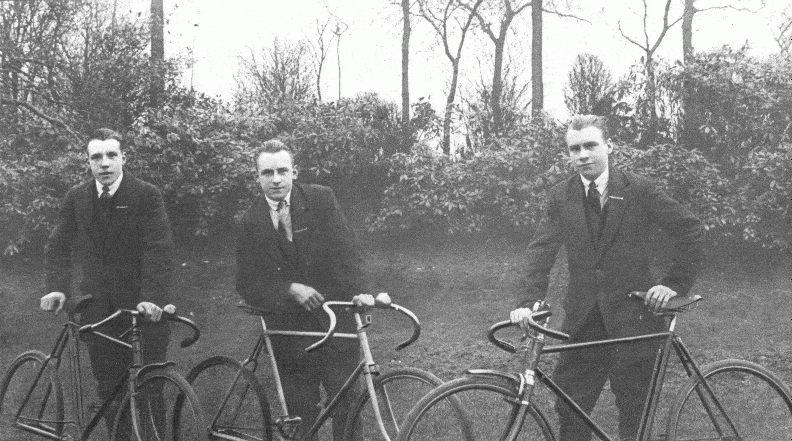From a Bury Times article at the time of our 50 years celebrations in 1951 we learned the following:
On a January day in 1901 seven determined ladies mounted bicycles, adjusted their flowing skirts and straw boaters and rode slowly through Bury’s streets. They ignored cries of ‘shame’ and ‘hussies’ from outraged pedestrians and the boos of children running alongside. Following the ladies at a respectable distance came 20 men, also riding bicycles. Those 27 had a mission, besides founding the Bury section of the National Clarion Cycling Club that day, they were intent on preaching Socialism as soon as they reached Tottington and Greenmount villages.
Our archives are incomplete but we do have the original cashbook in our possession. Alas half the first page is missing but the beautiful copper plate writing reveals the following were in membership – A and W Smith, J H Jackson, C E Hill, J H Hammer, A Wolfenden, J Yates, W Rothwell and A Hill.
We know nothing of these people except that they were probably as focussed on socialism as they were on cycling. They would ride bicycles that we would probably find uncomfortable; through the towns they would have to cope with both setts and tramlines; in the countryside not all roads would be metalled. Those that were, were constructed by scattering pebbles onto hot tar resulting in a surface hazardous at the edges and not a joy to ride on until the pebbles were compressed into the tar. For those of the generation that had experience of these roads, this was how resurfacing was carried out into the 1940s (and until the 1960s in Scotland). Our founders would not be experiencing the joys of cycling on the cheap as cycles were expensive and pneumatic tyres were a relatively new concept.
By 1905 we had 27 members and the annual fee was one shilling about a twentieth of the weekly wage. In 1908 we bought a whistle for the sub-captain – someone, no doubt, will know the different commands that blowing the whistle communicated. In those days we were providing some kind of insurance which apparently also included accidents – this lasted until the early 1960s. We kept going through the 1914-1918 war although membership not surprisingly fell.


